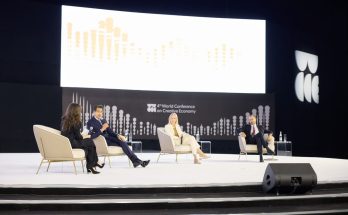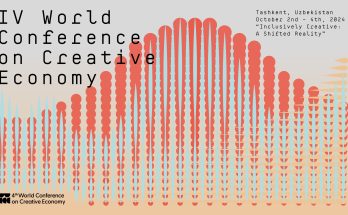 It’s a gift that gladdened the heart of India’s Prime Minister Narendra Modi and millions of Indians who worship Lord Shiva. Besides the nuclear deal, Australia’s Prime Minister Tony Abbott gifted two antique statues of Shiva and Shiva-Parvati, stolen from the Sripuranthan temple in Tamil Nadu, to Mr Modi when they met in New Delhi.
It’s a gift that gladdened the heart of India’s Prime Minister Narendra Modi and millions of Indians who worship Lord Shiva. Besides the nuclear deal, Australia’s Prime Minister Tony Abbott gifted two antique statues of Shiva and Shiva-Parvati, stolen from the Sripuranthan temple in Tamil Nadu, to Mr Modi when they met in New Delhi.
“At first, I would like to convey to Prime Minister Abbott the deep sense of gratitude of 1.25 billion people of India for the efforts he has made to bring with him two ancient statues that were stolen from India,” Mr Modi said at a joint media interaction with his Australian counterpart September 5. “The moment we had conveyed our request for the return of these statues, his government took this decision with great speed. Prime Minister Abbott and the people of Australian have shown enormous respect and regard not only for our ancient treasure, but also for our cultural heritage,”
These antique figures – a bronze statue of Nataraj, and a stone statue of Ardhnarisawara, belonging to the Chola period in the 11th and 12th Century C.E. — were in possession of the National Gallery of Australia (NGA), and the Art Gallery of New South Wales, after they bought it from a US-based antiquities dealer Subhash Kapoor in 2008.
In 2012, Kapoor, the owner of the “Art of the Past” gallery in New York, was arrested in Germany and extradited to India. He is currently lodged in a Chennai jail and stands trail for burglary and smuggling.
Kapoor’s arrest once more brought to the fore the massive smuggling racket of ancient Indian heritage. According to Jason Felch, co-author of Chasing Aphrodite, Kapoor alone, sold over 230 rare artefacts to museums and art galleries around the world, including New York’s Metropolitan Museum of Art.
Once the artefacts have been sold it’s a tough task to get them back. The process is long and arduous and requires a lot of evidence.
In this case, India’s Ministry of External Affairs was quick to act. It made a formal proposal through India’s High Commission in Canberra to Australia’s Department of Attorney General to return the two statues in March. After labyrinthine discussions and negotiations, Australia’s Attorney-General Department would take action as per its legal provisions.
Following the complaint, and after India established that the exhibited antiques were indeed stolen, Australia’s government graciously removed them from its museum’s gallery.
When the immigration and customs authorities in New York City raided Kapoor’s antique shop they recovered over $20 million worth of goods, signalling the massive size of the smuggling ring. The two antiques being returned to India were reportedly sold for over 5.3 million USD –the bronze Nataraja idol brought 5 million USD, while the Shiva idol is said to have fetched $300,000.
 While India prohibits the export of antiquities under its Antiquities and Art Treasures Act 1972, artefacts still find a way its way into the market. In fact, some experts argue that it is this outdated law that in part facilitates the smuggling of artefacts. With no avenue to legally sell antiques in the domestic market, these rare treasures find their way into foreign and black markets where they are sold at exorbitant prices.
While India prohibits the export of antiquities under its Antiquities and Art Treasures Act 1972, artefacts still find a way its way into the market. In fact, some experts argue that it is this outdated law that in part facilitates the smuggling of artefacts. With no avenue to legally sell antiques in the domestic market, these rare treasures find their way into foreign and black markets where they are sold at exorbitant prices.
In 2012, there were renewed efforts to change the law, but that, too, has been caught in the intricate web of bureaucracy.
The return of the antiques provides an occasion to celebrate the diplomacy of goodwill. It symbolises a friendship, like the one shown by the US when it handed over three stolen antique sculptures, valued at over 1.5 million USD, after the bitter spat over an Indian diplomat arrested in New York for alleged mistreatment of her maid.
However, the return of these statues should also provoke questions about how do the country’s priceless heritage, time and again, get robbed, only to be returned years later as gestures of goodwill.
Author Profile
- India Writes Network (www.indiawrites.org) is an emerging think tank and a media-publishing company focused on international affairs & the India Story. Centre for Global India Insights is the research arm of India Writes Network. To subscribe to India and the World, write to editor@indiawrites.org. A venture of TGII Media Private Limited, a leading media, publishing and consultancy company, IWN has carved a niche for balanced and exhaustive reporting and analysis of international affairs. Eminent personalities, politicians, diplomats, authors, strategy gurus and news-makers have contributed to India Writes Network, as also “India and the World,” a magazine focused on global affairs.
Latest entries
 DiplomacyJanuary 5, 2026India walks diplomatic tightrope over US operation in Venezuela
DiplomacyJanuary 5, 2026India walks diplomatic tightrope over US operation in Venezuela India and the WorldNovember 26, 2025G20@20: Africa’s Moment – The Once and Future World Order
India and the WorldNovember 26, 2025G20@20: Africa’s Moment – The Once and Future World Order DiplomacyOctober 4, 2025UNGA Resolution 2758 Must Not Be Distorted, One-China Principle Brooks No Challenge
DiplomacyOctober 4, 2025UNGA Resolution 2758 Must Not Be Distorted, One-China Principle Brooks No Challenge India and the WorldJuly 26, 2025MPs, diplomats laud Operation Sindoor, call for national unity to combat Pakistan-sponsored terror
India and the WorldJuly 26, 2025MPs, diplomats laud Operation Sindoor, call for national unity to combat Pakistan-sponsored terror







